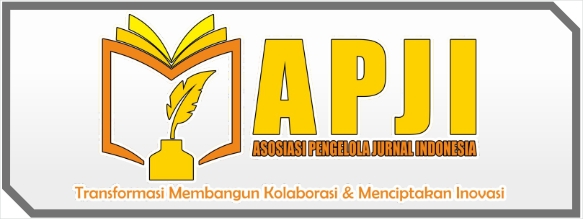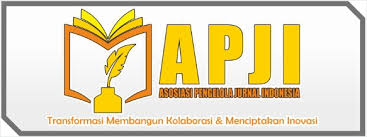Empowering Rural Communities Through Financial Literacy and Micro-Budgeting Training
DOI:
https://doi.org/10.70610/assoeltan.v3i1.805Kata Kunci:
Financial Literacy, Micro-Budgeting, Rural Communities, Financial Empowerment, Savings HabitsAbstrak
This community service initiative aimed to empower rural communities by enhancing financial literacy and introducing micro-budgeting practices. The background of the study stems from the persistent challenge of financial instability in rural areas, where individuals often struggle with irregular incomes and limited access to formal financial services. The primary objective was to equip participants with practical financial management skills to reduce their dependency on informal loans and improve their financial decision-making. The method employed was a participatory approach using micro-budgeting training, which included hands-on budgeting, savings, and expense-tracking exercises adapted to the local economic context. The results showed a significant improvement in participants' ability to manage their finances, with notable reductions in reliance on informal lending and an increase in savings habits. Participants reported higher levels of financial confidence, particularly women, who gained greater financial autonomy. However, challenges remained in maintaining savings habits long-term due to irregular incomes. The initiative's contribution lies in providing a sustainable model for rural financial empowerment that goes beyond traditional microfinance by focusing on daily financial management. It highlights the importance of tailored financial education and community-driven learning for long-term economic stability. Future programs should incorporate personalized support and advanced financial strategies to enhance such initiatives' effectiveness further.
Referensi
AbuAkel, S. A., & Ibrahim, M. (2023). The Effect of Relative Advantage, Top Management Support and IT Infrastructure on E-Filing Adoption. Journal of Risk and Financial Management, 16(6), 295.
Akinwamide, T. K. E., & Oguntade, F. M. (2023). Facilitating Independent and Collective Writing Skill Proficiency: The Think-Pair-Share Strategy Involvement. European Journal of Linguistics, 2(1). https://doi.org/10.47941/ejl.1196
Al-Najjar, S. M., Jawad, M. K., & Saber, O. A. (2018). Application of ABC-VED Matrix Analysis to Control the Inventory of a Central Pharmacy in a Public Hospital: A Case Study. International Journal of Science and Research, 9(1), 1328–1336. https://doi.org/10.21275/ART20204180
Desembrianita, E., Zahruddin, A., & Arifin, Z. (2023). Analysis of Public Policy as Catalyst for Entrepreneurship Growth and Innovation. West Science Journal Economic and Entrepreneurship, 1(03), 181–187.
Hasanah, Y. (2021). Eco enzyme and its benefits for organic rice production and disinfectant. Journal of Saintech Transfer, 3(2), 119–128. https://doi.org/10.32734/jst.v3i2.4519
Herry, E., Permana, P. Y. E., Aji, W. B., & Muhtadi, R. (2019). Total Quality Management Development and Sharia Governance Efforts in Sharia Micro Financial Institutions to Improve Market Share. IJIEEB International Journal of Integrated Education, Engineering and Business EISSN 2615-1596 PISSN 2615-2312, 2(1), 27–35.
Jamiah, Y., Fatmawati, F., & Purwaningsih, E. (2019). Internalization of Students’ Nationalism Sense through Outbound Learning Based on Local Wisdom. JETL (Journal Of Education, Teaching and Learning), 4(2), 339–344. https://doi.org/10.26737/jetl.v4i2.1642
Kharisma, B., & Wibowo, K. (2019). Consistency of Planning and Budgeting of Basic Infrastructure in West Java Province. Economics Development Analysis Journal, 8(1), 65–80. https://doi.org/10.15294/edaj.v8i1.28129
Lakkala, S., Galkienė, A., Navaitienė, J., Cierpiałowska, T., Tomecek, S., & Uusiautti, S. (2021). Teachers supporting students in collaborative ways—An analysis of collaborative work creating supportive learning environments for every student in a school: Cases from Austria, Finland, Lithuania, and Poland. Sustainability, 13(5), 2804.
Lee, R., Hoe Looi, K., Faulkner, M., & Neale, L. (2021). The moderating influence of environment factors in an extended community of inquiry model of e-learning. Asia Pacific Journal of Education, 41(1). https://doi.org/10.1080/02188791.2020.1758032
Litamahuputty, J. V. (2022). The Urgency Of Financial Literacy Education From Early: A Theoretical Approach. Jurnal Pendidikan Dan Konseling (JPDK), 4(6), 12867–12869.
Litamahuputty, J. V., Siahaya, A., & Cornelis, V. (2024). The Role of Financial Literacy as A Moderating Variable in the Impact of Fintech Payments on Consumer Behavior. JHSS (JOURNAL OF HUMANITIES AND SOCIAL STUDIES), 8(1), 184–188.
Matli, W., & Ngoepe, M. (2020). Capitalizing on digital literacy skills for capacity development of people who are not in education, employment or training in South Africa. African Journal of Science, Technology, Innovation and Development, 12(2), 129–139.
Miliyanti, N., Rinaldy, R., & Alghifari, R. (2022). Application of Participatory Rural Appraisal (PRA) Techniques in Waste Problems in Sukamanis Village Kadudampit District. Jurnal Pengabdian Masyarakat Bestari, 1(9). https://doi.org/10.55927/jpmb.v1i9.2111
Motsumi, M. J., Mashalla, Y., Sebego, M., Ho-Foster, A., Motshome, P., Mokokwe, L., Mmalane, M., & Montshiwa, T. (2020). Developing a trauma registry in a middle-income country – Botswana. African Journal of Emergency Medicine, 10. https://doi.org/10.1016/j.afjem.2020.06.011
Nabilah Mokhtar, Lim Zhi Xuan, Lokman, H. F., & Noor Hayati Che Mat, N. H. C. M. (2023). Theory, Literature Review, and Fun Learning Method Effectiveness in Teaching and Learning. International Journal of Social Science and Education Research Studies, 03(08), 1738–1744. https://doi.org/10.55677/ijssers/v03i8y2023-30
Nugraha, A. P., Wibisono, C., Satriawan, B., Indrayani, Mulyadi, & Damsar. (2022). The Influence Of Transformational Leadership, Job Crafting, Job Satisfaction, And Self-Efficacy On Job Performance Through Work Engagement Of State Civil Apparatus As An Intervening Variable In The Digital Era Of Cases In The Local Government Of Karimun R. Central European Management Journal, 30(3), 2336–2693.
Nugroho, A. P., Asfahani, A., Sugiarto, F., Sufyati, H. S., & Setiono, A. (2023). Community Assistance in Utilizing Sharia-Based Digital Banking. Amalee: Indonesian Journal of Community Research and Engagement, 4(2), 519–530.
O’Meara, K., & Jaeger, A. J. (2019). Preparing future faculty for community engagement: Barriers, facilitators, models, and recommendations. Building the Field of Higher Education Engagement, 111–131.
Omondi, R. I., & Jagongo, A. (2018). Microfinance services and financial performance of small and medium enterprises of youth SMEs in Kisumu County, Kenya. International Academic Journal of Economics and Finance, 3(1), 24–43.
Podolsky, A., Kini, T., & Darling-Hammond, L. (2019). Does teaching experience increase teacher effectiveness? A review of US research. Journal of Professional Capital and Community, 4(4), 286–308.
Prabowo, P. A., Supriyono, B., Noor, I., & Muluk, M. K. (2021). Special autonomy policy evaluation to improve community welfare in Papua province Indonesia. International Journal of Excellence in Government, 2(1), 24–40. https://doi.org/10.1108/ijeg-06-2019-0011
Pratama, D., Nurwani, N., & Nasution, Y. S. J. (2023). The Effect of Understanding of Financial Literacy and Ease of Digital Payment on the Continuity of Msmes in the Digitalization Era. Indonesian Interdisciplinary Journal of Sharia Economics (IIJSE), 6(2), 618–638.
Rahmadani, R., Raharjo, S. T., & Resnawaty, R. (2019). Fungsi Corporate social responsibility (CSR) Dalam Pengembangan dan Pemberdayaan Masyarakat. Share : Social Work Journal, 8(2), 203. https://doi.org/10.24198/share.v8i2.20081
Randolph, J. (2019). A guide to writing the dissertation literature review. Practical Assessment, Research, and Evaluation, 14(1), 13.
Sandham, L. A., Chabalala, J. J., & Spaling, H. H. (2019). Participatory rural appraisal approaches for public participation in EIA: Lessons from South Africa. Land, 8(10), 150.
Shkolnikov, V. M., Andreev, E. M., Tursun-zade, R., & Leon, D. A. (2019). Patterns in the relationship between life expectancy and gross domestic product in Russia in 2005–15: a cross-sectional analysis. The Lancet Public Health, 4(4), e181–e188. https://doi.org/10.1016/S2468-2667(19)30036-2
Tyagi, R. (2023). Empowering the unbanked: a revolution in financial inclusion through artificial intelligence. International Journal of Research in Engineering, Science and Management, 6(10), 4–12.
Yunda Sari, F., Sapta Pranoto, Y., Purwasih, R., Agribisnis, J., & Pertanian Perikanan dan Biologi, F. (2020). Analysis of Salted Fish (Case Study of Rebo Village, Sungailiat District, Bangka District) Analisis Usaha Ikan Asin (Studi Kasus Desa Rebo Kecamatan Sungailiat Kabupaten Bangka). Journal of Integrated Agribusiness, 2(1), 20–36. https://doi.org/10.33019/jia.v2i1.xxxx
Zaim, M., Refnaldi, & Arsyad, S. (2020). Authentic assessment for speaking skills: Problem and solution for English secondary school teachers in Indonesia. International Journal of Instruction, 13(3). https://doi.org/10.29333/iji.2020.13340a
Unduhan
Diterbitkan
Cara Mengutip
Terbitan
Bagian
Lisensi
Hak Cipta (c) 2025 Assoeltan: Indonesian Journal of Community Research and Engagement

Artikel ini berlisensiCreative Commons Attribution-NonCommercial-ShareAlike 4.0 International License.
License: CC BY-SA 4.0 (Creative Commons Attribution-ShareAlike 4.0 International License)













